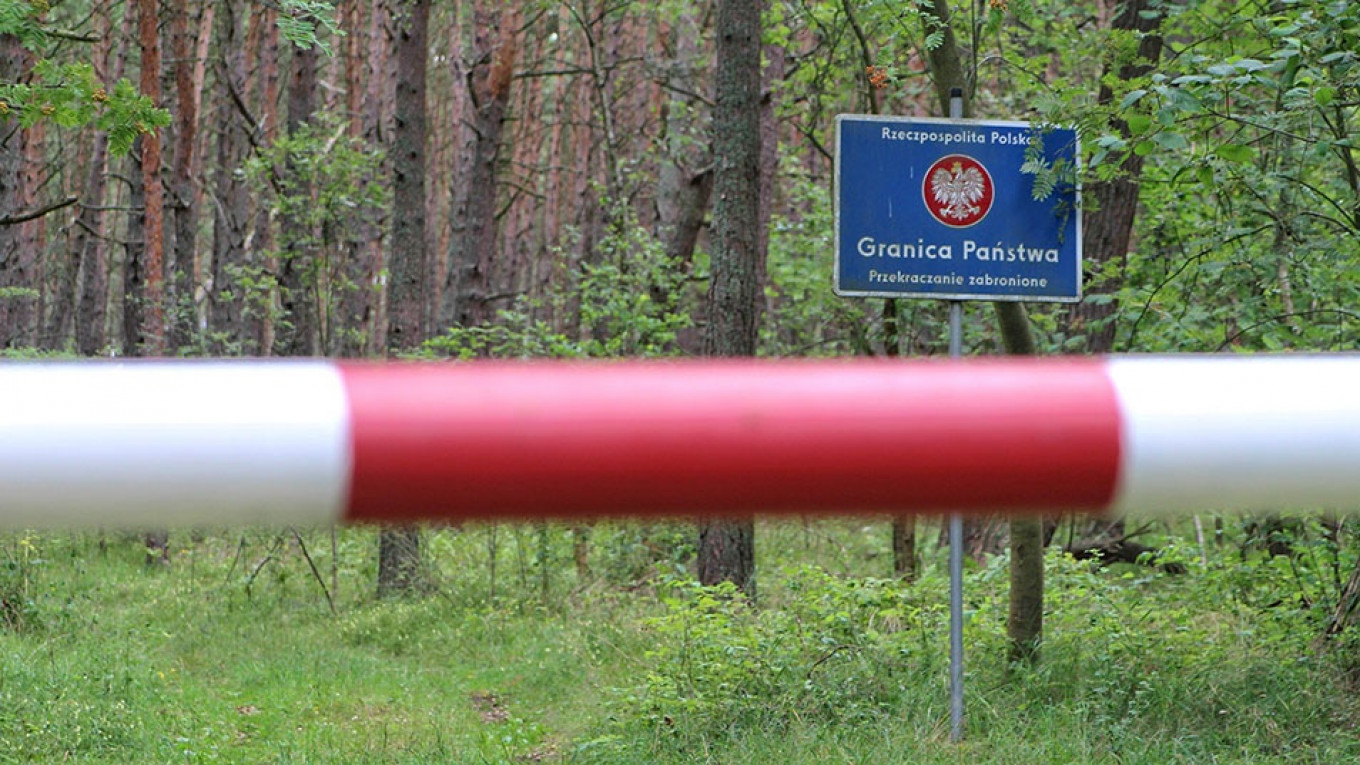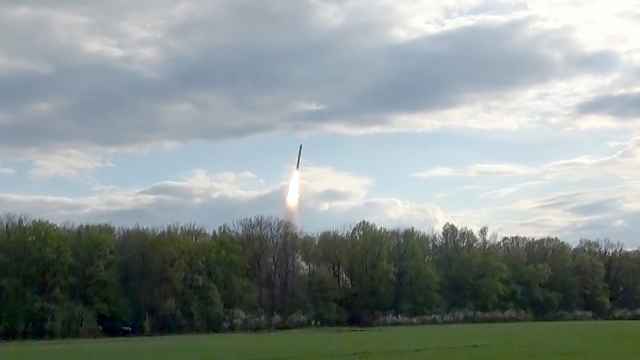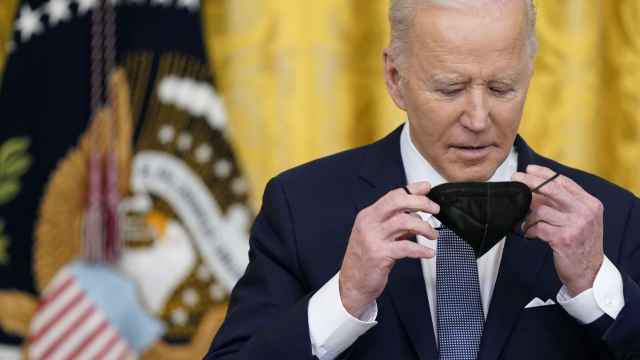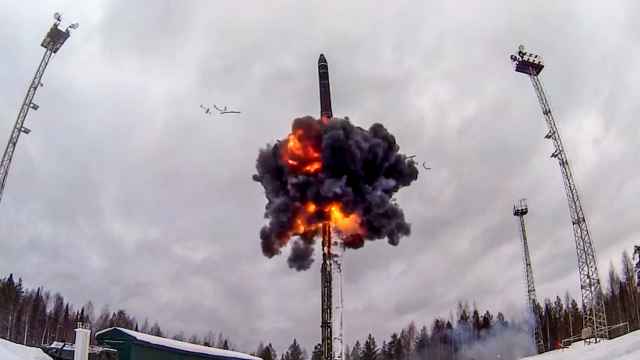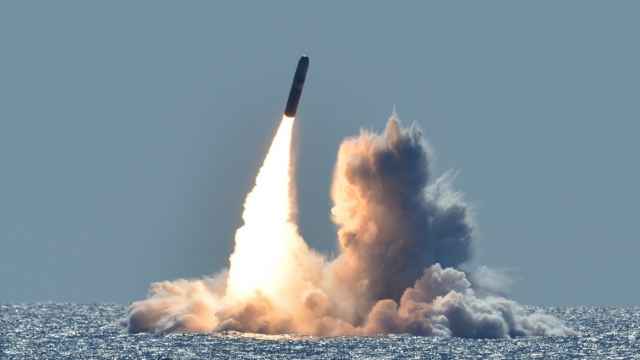Russia has reportedly fortified several explosive storage bunkers in the latest military buildup in Kaliningrad, one of Russia’s most militarized regions wedged between Poland and Lithuania.
The move comes ahead of two significant international meetings: The two-day NATO summit starting in Brussels on Wednesday and Donald Trump’s talks with Vladimir Putin on July 16 in Finland. Eastern European allies who fear a Russian incursion will seek Trump’s assurances at the NATO summit this week that he will not end U.S. cooperation with the defense league.
New satellite images claim to show Russian upgrades to military bunkers near the Kulikovo nuclear weapons storage site in the Kaliningrad region, the U.S. national security news website Defense One reported Tuesday.
Geospatial analyst Matt Hall told Defense One that the images showed fortified buildings “characteristic of explosive storage bunkers” with a fence surrounding the structure. Mounds of dirt called berms appear to have been reinforced “to make them more obscured from aerial detection,” Hall was quoted as saying.
The explosives storage site in Baltiysk was renovated between March 18 and June 20, the outlet said. Earlier reports appeared to show renovations at a nuclear weapons storage site in Kaliningrad.
The recent images also show a railroad line that analyst Hall said likely connects to the Russian national rail system running through Lithuania.
In 2008, Russian armed forces repaired a railroad on the border of Abkhazia several months before the Russia-Georgia war broke out.
A June report by the Federation of American Scientists (FAS) also relied on satellite imagery to show the upgraded Kulikovo nuclear weapons storage site near Baltiysk.
Home to short-range missiles deployed in response to a U.S. missile defense system in Europe, Kaliningrad’s position between NATO members Poland and Lithuania makes it a potential flashpoint in any geopolitical conflict.
The latest deployment of nuclear-capable missiles in Kaliningrad, Russia’s westernmost exclave, took place at the start of 2018.
Reuters contributed reporting to this article.
A Message from The Moscow Times:
Dear readers,
We are facing unprecedented challenges. Russia's Prosecutor General's Office has designated The Moscow Times as an "undesirable" organization, criminalizing our work and putting our staff at risk of prosecution. This follows our earlier unjust labeling as a "foreign agent."
These actions are direct attempts to silence independent journalism in Russia. The authorities claim our work "discredits the decisions of the Russian leadership." We see things differently: we strive to provide accurate, unbiased reporting on Russia.
We, the journalists of The Moscow Times, refuse to be silenced. But to continue our work, we need your help.
Your support, no matter how small, makes a world of difference. If you can, please support us monthly starting from just $2. It's quick to set up, and every contribution makes a significant impact.
By supporting The Moscow Times, you're defending open, independent journalism in the face of repression. Thank you for standing with us.
Remind me later.


